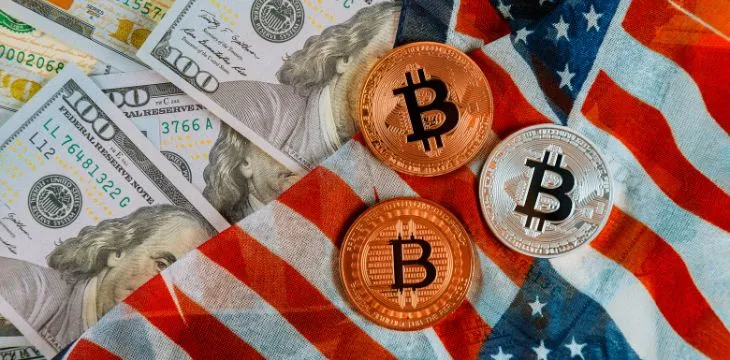|
Getting your Trinity Audio player ready...
|
The United States government must accelerate its digital dollar efforts or risk losing the battle to China’s “surveillance coin,” a former boss at the Commodity Futures Trading Commission (CFTC) has claimed.
In an op-ed for The Hill, Christopher Giancarlo delved into his proposed design of a digital dollar that would protect against government surveillance and encourage adoption. Former President Donald Trump nominated Giancarlo to be the 13th chairman of the CFTC from 2017 to 2019.
My op-ed in @theHIll with @Jim Harper: the question is not whether #CBDCs can be stopped (they can’t), but whether sovereign AND non-sovereign #digitalcurrency will enslave or liberate citizens of free societies. https://t.co/h1oT14NalK
— Chris Giancarlo (@giancarloMKTS) March 13, 2023
Giancarlo, who was pro-digital assets during his reign at the CFTC, noted that there are concerns with developing a digital dollar. However, as America teeters, other countries are marching on with their central bank digital currencies (CBDCs), including “countries antagonistic to personal freedom, such as China.”
As with many other Western leaders, Giancarlo expressed his skepticism towards the digital yuan. He believes that China designed the CBDC to give the state more power of surveillance and control over its people.
Several leaders and economic experts have expressed similar views against the digital yuan, including Bank of France Governor François Villeroy de Galhau.
Giancarlo believes that a digital dollar would lower transaction costs and boost access to financial services. It would also strengthen the Fed’s ability to influence monetary policy, allowing direct infusions of money into the economy.
However, there are several considerations before the Fed launches the CBDC. One of these is whether to rely on a decentralized ledger, such as the blockchain, or a private ledger. Giancarlo believes that the best solution borrows from both, pointing to MIT’s Project Hamilton scheme–which it undertook with the Federal Reserve Bank of Boston–as a breakthrough.
‘The digital dollar must protect financial privacy’
Giancarlo now heads the Digital Dollar Project, and in a recent joint report with the American Enterprise Institute, he delved into the need to ensure privacy with the digital dollar.
The report called on the Fed to ensure the digital dollar doesn’t weaken the personal financial privacy that physical U.S. dollars provide.
“Second, a U.S. CBDC must not become a new, easier avenue for government agencies to surveil citizens, levy fines and enact punishments as can be expected from autocratic governments using surveillance coin.”
The Fed must reassess financial surveillance practices that have become commonplace with payment giants, Giancarlo added.
“… with proper changes to financial surveillance policy, U.S.-created freedom coins can help lead the world toward a richly deserved freer and essentially moral financial future.”
The U.S. has yet to commit to developing a CBDC. However, the Fed has been exploring the feasibility of the digital dollar, with Treasury Department Undersecretary Nellie Liang revealing recently that these efforts have been accelerated in recent months.
“Even as policy deliberations continue, the Fed is conducting technology research and experimentation to inform design choices…In the coming months, leaders from Treasury, the Federal Reserve, and White House offices will begin to meet regularly to discuss a possible CDBC and other payments innovations,” she told Washington-based think tank Atlantic Council.
These deliberations are likely to last for years. Fed chair Jerome Powell has insisted that the CBDC is still years away on several occasions, most recently while addressing the U.S. House Committee on Financial Services a week ago.
For the U.S., a wholesale CBDC is much closer than a retail digital currency. Powell told lawmakers in the same meeting that he might even bypass the approval of Congress and issue the wholesale digital dollar.
To learn more about central bank digital currencies and some of the design decisions that need to be considered when creating and launching it, read nChain’s CBDC playbook.
Watch: CBDCs and BSV

 07-02-2025
07-02-2025 





